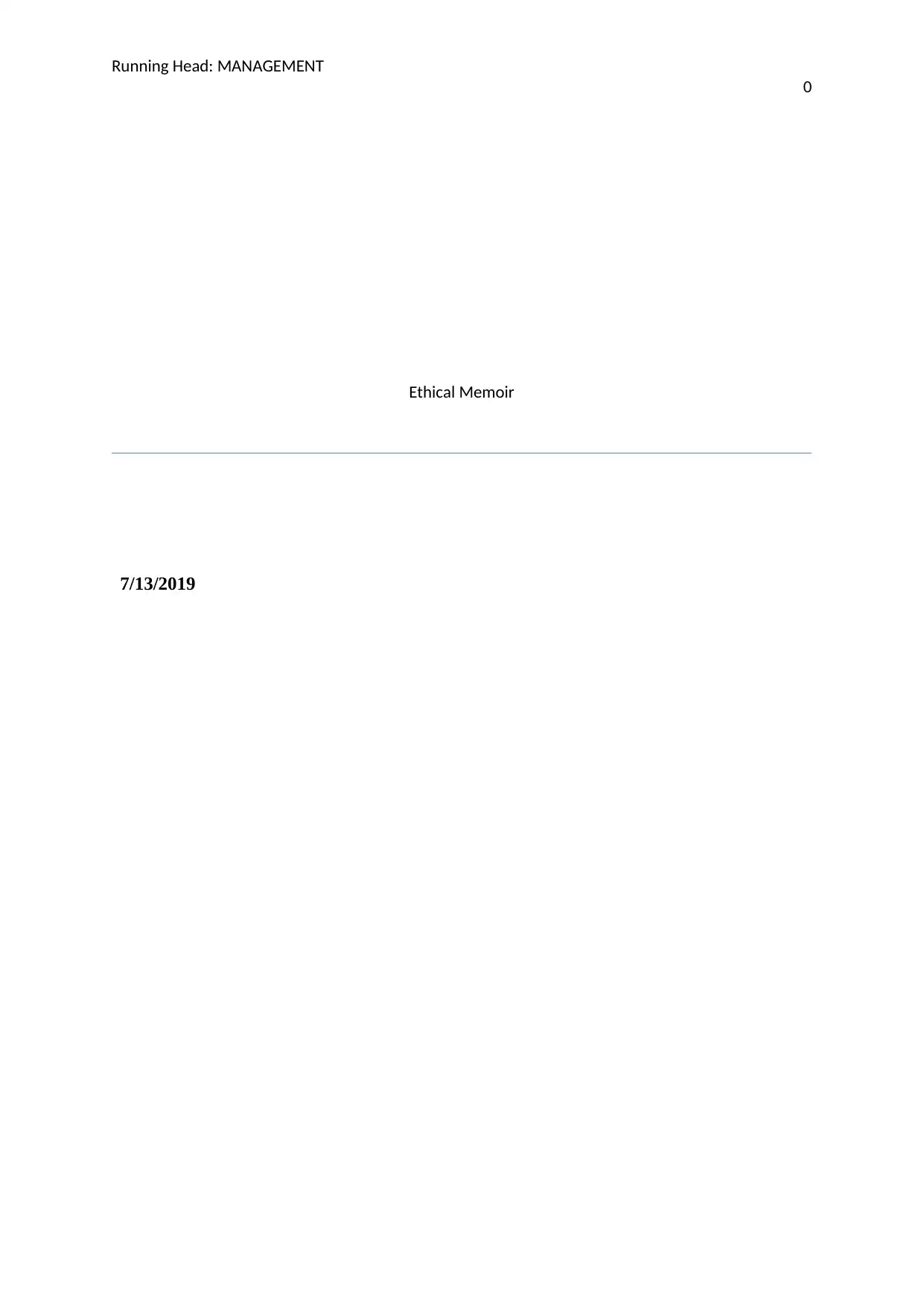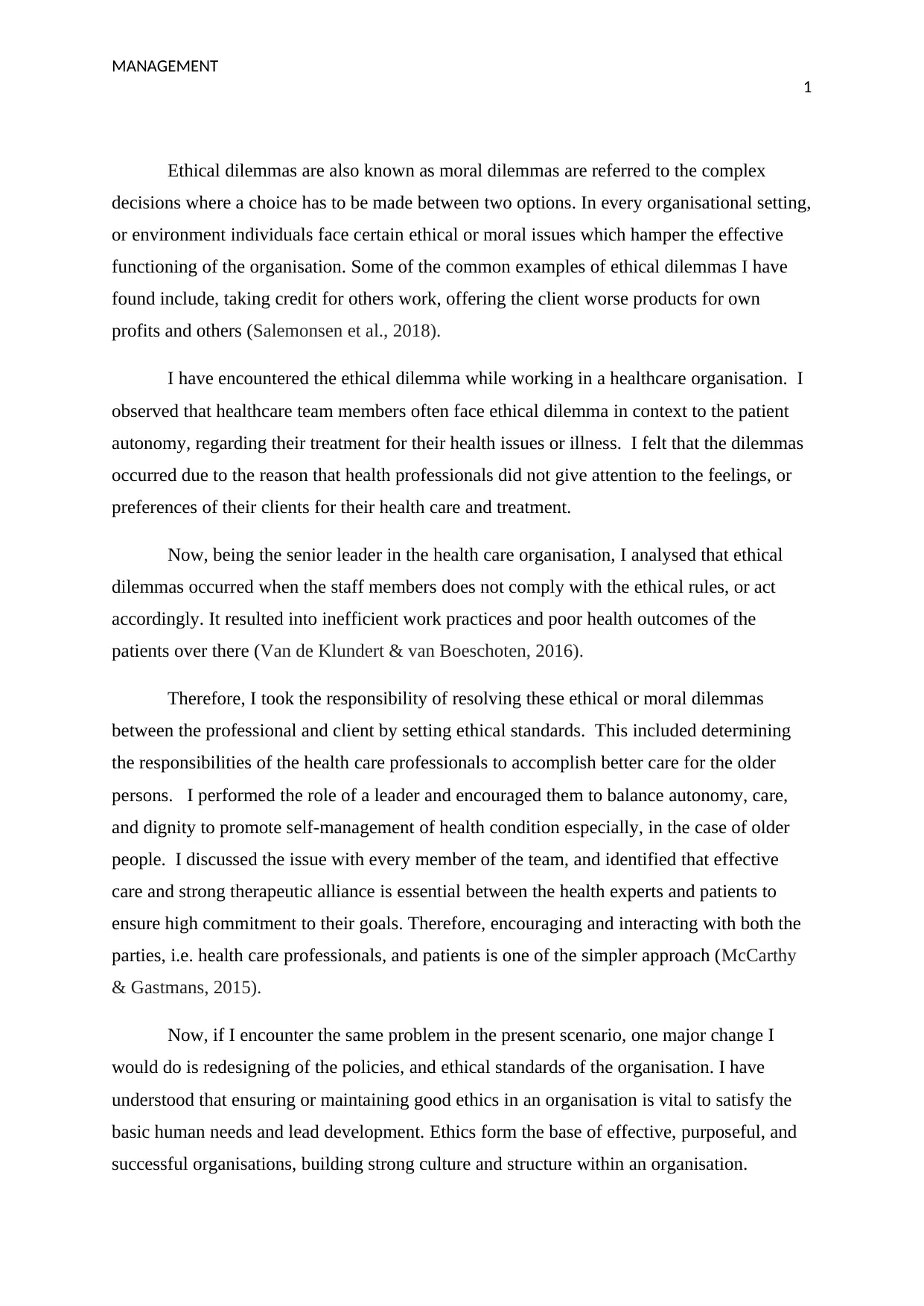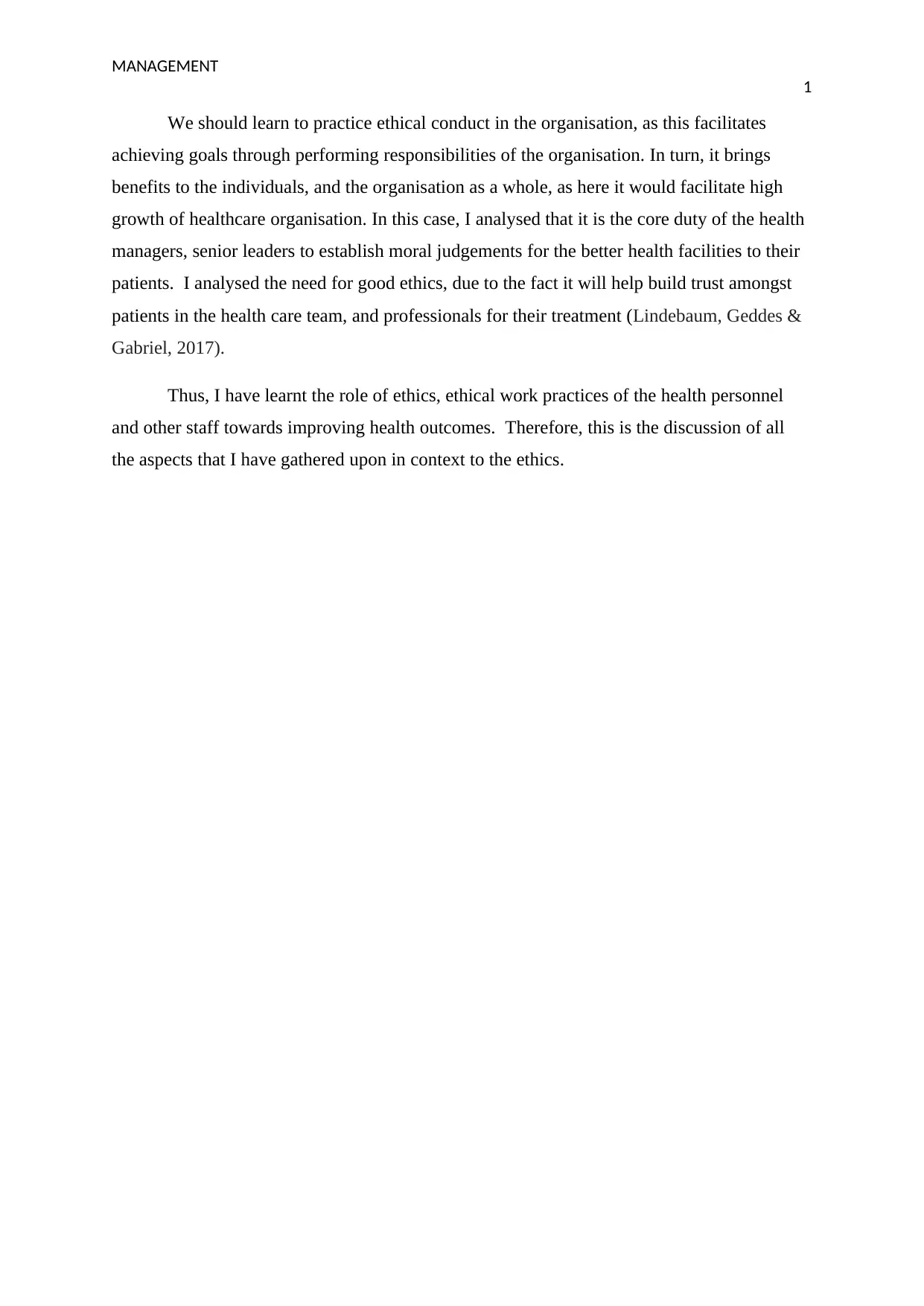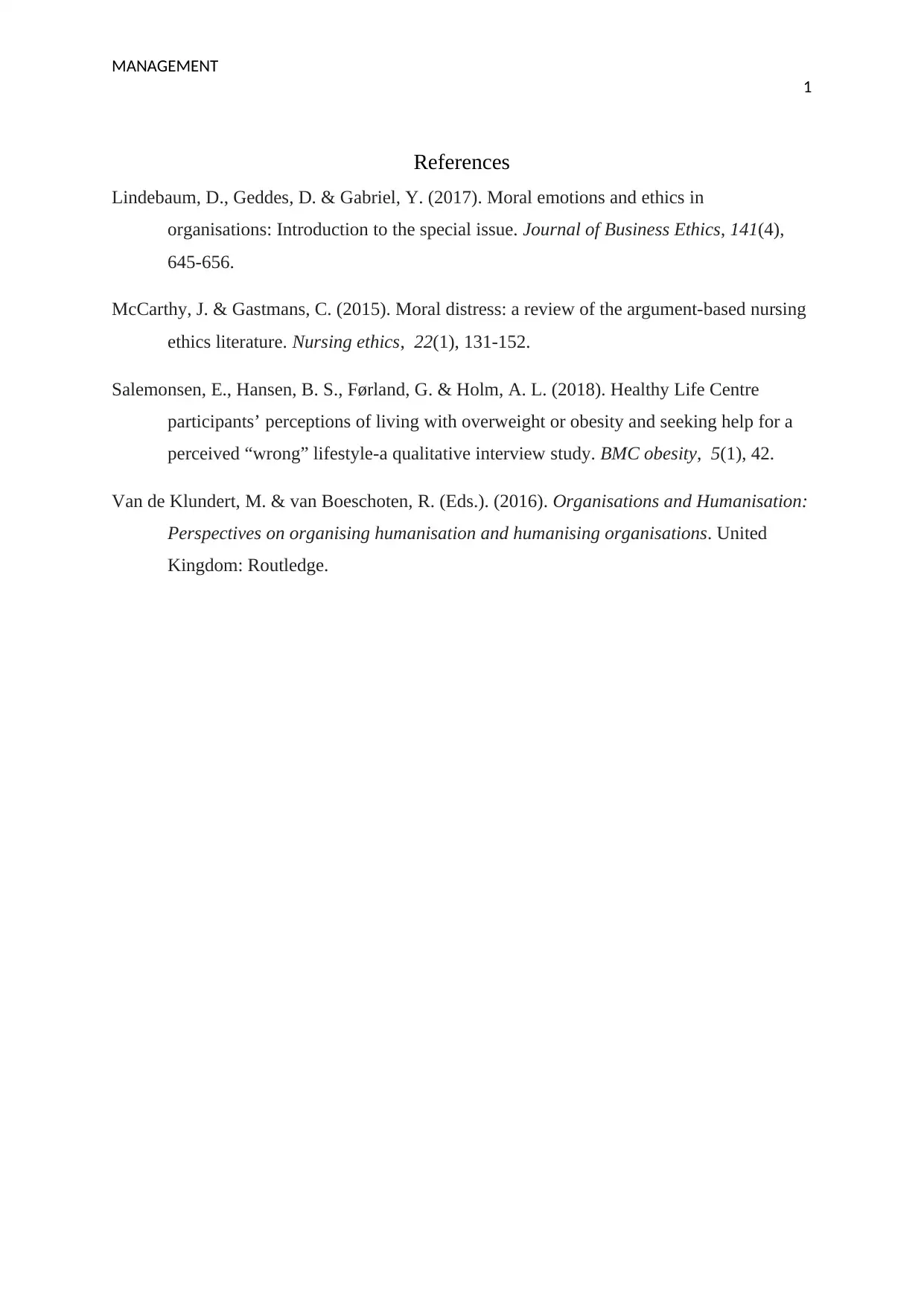Ethical Memoir: Ethical Dilemmas in Healthcare Management
VerifiedAdded on 2022/11/17
|4
|787
|260
Essay
AI Summary
This ethical memoir examines ethical dilemmas encountered in a healthcare setting, focusing on issues related to patient autonomy and treatment decisions. The author, a senior leader in a healthcare organization, reflects on instances where ethical standards were not met, leading to inefficient work practices and negative patient outcomes. The essay details the steps taken to address these challenges, including establishing ethical standards, promoting patient autonomy, and fostering a strong therapeutic alliance between healthcare professionals and patients. The author emphasizes the importance of redesigning organizational policies, ethical standards, and the critical role of healthcare managers in establishing moral judgments to build trust and improve patient outcomes. The memoir concludes by highlighting the significance of ethical work practices in healthcare and their impact on overall health outcomes.
1 out of 4











![[object Object]](/_next/static/media/star-bottom.7253800d.svg)